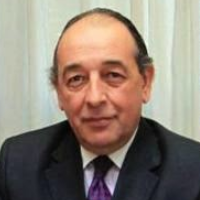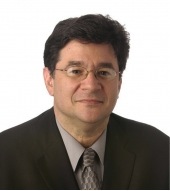Tunisia's Historic Elections
and Coming Challenges
Wednesday, October 29, 2014
2:00 to 3:30 p.m.
National Press Club
529 14th St. NW, 13th Floor, Zenger Room
Washington DC 20045
His Excellency Mohamed Ezzine Chelaifa
Tunisian Ambassador to the United States
Jeffrey England
Deputy Regional Director for MENA, National Democratic Institute
(arriving from Tunisia where he observed the elections)
Stephen McInerney
Executive Director of the Project on Middle East Democracy (POMED)
Daniel Brumberg
Special Advisor, United States Institute of Peace
and Professor, Georgetown University
Moderator and Speaker:
Center for the Study of Islam & Democracy
As the international community rallies to confront the so-called Islamic State (ISIS)
and other aspects of regional and global turbulence, revolutionary Tunisia has continued to
surprise and surpass expectations. It has become, after nearly four years, the Arab world's
longest and most profound democratic experiment. On Sunday, Tunisia completed its first
landmark elections following passage of a unprecedented, consensual and inclusive
constitution. Preliminary results of the elections will coincide with this event, for which we
have assembled some of the leading commentators on Tunisian politics in Washington,
D.C. Please join us for first hand accounts from the polls and insight into the breaking
news coming from #tnelec and across Tunisia. The event will include critical analysis of
the emerging narratives of what just happened (such as "old regime restoration," "secular
victory," "Islamist defeat," "the conservatives won" or "the democrats won.") Panelists will
also be asked to offer commentary and predictions on the presidential elections in three
weeks and will outline key challenges facing Tunisia, as well as making the case for
increasing U.S. engagements in Tunisia to support democracy.
SPEAKER BIOGRAPHIES:

 Jeffrey England is Deputy Regional Director for NDI's Middle East and North Africa (MENA) division. From 2009 to 2012, Mr. England served as NDI's Resident Country Director for Morocco and Algeria and was the Institute's representative for the Maghreb North Africa until offices opened in Tunisia and Libya in mid-2011. Prior to assuming that post, Mr. England spent four years managing the Institutes's Maghreb portfolio from Washington, DC. Mr. England also opened the NDI office in Mauritania. He spearheaded cross-regional collaboration initiatives, including the launch of the Aswat platform, one of the first multilingual online hubs for democratic activists across the MENA region. He has led development of transparency initiatives, such as the launch of Morocco's first legislative citizen monitoring initiative, as well as the initial domestic election observation training and networking for Algeria, Tunisia, and Libyan activists prior to the Arab Spring. He has led and served on elections assessments and observation missions in Algeria, Bosnia and Herzogovina, Kuwait, Morocco, Tunisia, and the West Bank.
Jeffrey England is Deputy Regional Director for NDI's Middle East and North Africa (MENA) division. From 2009 to 2012, Mr. England served as NDI's Resident Country Director for Morocco and Algeria and was the Institute's representative for the Maghreb North Africa until offices opened in Tunisia and Libya in mid-2011. Prior to assuming that post, Mr. England spent four years managing the Institutes's Maghreb portfolio from Washington, DC. Mr. England also opened the NDI office in Mauritania. He spearheaded cross-regional collaboration initiatives, including the launch of the Aswat platform, one of the first multilingual online hubs for democratic activists across the MENA region. He has led development of transparency initiatives, such as the launch of Morocco's first legislative citizen monitoring initiative, as well as the initial domestic election observation training and networking for Algeria, Tunisia, and Libyan activists prior to the Arab Spring. He has led and served on elections assessments and observation missions in Algeria, Bosnia and Herzogovina, Kuwait, Morocco, Tunisia, and the West Bank.

 Daniel Brumberg is a Special Advisor at the United States Institute of Peace, where he focuses on democratization and reform in the Middle East and wider Islamic world. He is also Co-Director of Democracy and Governance Studies at Georgetown University. Prior to Georgetown, he was a Visiting Professor at Emory University, a Visiting Fellow at the Carter Center, and a Lecturer at the University of Chicago's Social Science Master's Program. Brumberg is the author of
Daniel Brumberg is a Special Advisor at the United States Institute of Peace, where he focuses on democratization and reform in the Middle East and wider Islamic world. He is also Co-Director of Democracy and Governance Studies at Georgetown University. Prior to Georgetown, he was a Visiting Professor at Emory University, a Visiting Fellow at the Carter Center, and a Lecturer at the University of Chicago's Social Science Master's Program. Brumberg is the author of
Reinventing Khomeini, The Struggle for Reform in Iran and the Co-Editor of Conflict Identity and Reform in the Muslim World, Challenges for US Engagement. The author of numerous articles on political and social change in the Islamic World, Brumberg has served as a consultant to the US Department of State and USAID. A Ph.D. from the University of Chicago, he speaks French and Arabic and has lived, studied and worked across the Middle East and Southeast Asia.

CLICK HERE TO REGISTER FOR THE EVENT:

